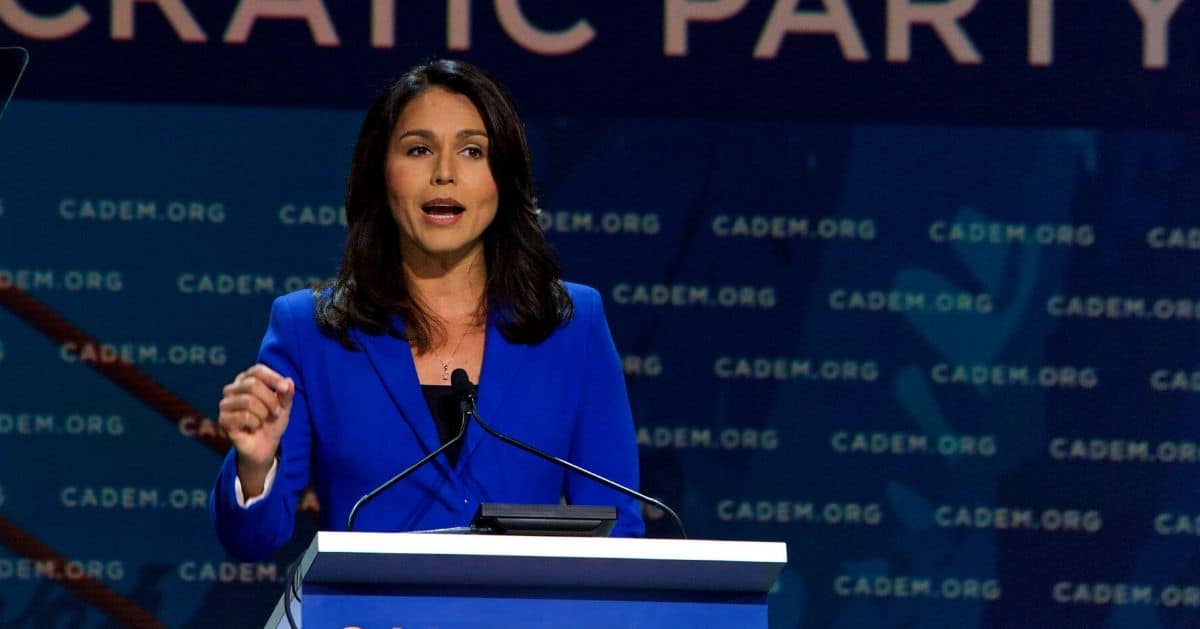






Senator Kyrsten Sinema (I-AZ) made an impassioned plea on December 18, 2024, urging the Senate to preserve the legislative filibuster.
The Washington Examiner reported that in her final speech on the Senate floor, Sinema called for the protection of the 60-vote filibuster threshold, stressing its role in safeguarding democratic values and promoting bipartisan cooperation.
Her remarks focused on the potential consequences of eliminating the filibuster, a key tool that requires a 60-vote supermajority to break a legislative filibuster. She warned that eliminating this safeguard could undermine consensus-building, one of the foundational principles of American democracy.
As she described, there is a temptation for political parties, particularly when in power, to see the filibuster as a "weapon of obstruction." Sinema emphasized that while eliminating the filibuster might offer immediate partisan victories, it would ultimately harm long-term governance.
“It is tempting to prefer elimination of the filibuster to compromise,” she said. “But there are dangers to choosing short-term victories over the hard and necessary work of building consensus.”
In her speech, Sinema emphasized the filibuster’s role in preventing what she called the “tyranny of the majority.” She explained that the filibuster ensures that no single party or person can dominate the Senate. This, she argued, was vital in a democracy where all voices, including those of the minority, should be heard and respected.
"One-party rule is not democracy, that’s autocracy," Sinema said. "That’s not the system our forefathers envisioned. The beauty of America is in the push and the pull."
As Sinema prepares to step away from the Senate after announcing her resignation in March 2024, her speech reflected her belief in the value of cooperation over partisanship. She expressed concern over the implications of disregarding this principle, both for the current political environment and for future generations.
Throughout her speech, Sinema highlighted her efforts to work across party lines, emphasizing key bipartisan achievements during her Senate career.
She pointed to the passage of significant laws such as the bipartisan infrastructure bill and the Respect for Marriage Act. These efforts, she noted, were driven by her belief in compromise and finding common ground for the good of the country.
Despite her break with the Democratic Party, Sinema maintained that she had always prioritized the nation’s interests over partisan politics. She thanked her colleagues for their partnership on various initiatives, emphasizing that her time in the Senate had been marked by a focus on collaboration rather than division.
"I’ve tried to demonstrate in these six years is you don’t have to burn down the rules and the norms to achieve what you want,” Sinema said. “You can just do the hard work.”
The speech drew praise from Senate leaders across the aisle. Outgoing Senate Majority Leader Mitch McConnell, a Republican from Kentucky, lauded Sinema for her principled stance on the filibuster.
“When saying nothing would have been a great deal easier, Arizona’s senior senator stood up in the face of a grave threat to this institution’s defining character,” McConnell said. “She said no. And in doing so, she sent a message that will resonate long after her departure from the chamber.”
However, Sinema’s farewell also came with a warning for Republicans. She cautioned that they should not follow the path of using reconciliation to bypass the filibuster if they regain control of the Senate. This, she warned, would only set a dangerous precedent for future administrations, regardless of party.
“As history has shown, abusing or eliminating one tool for short-term gain means the other party will do the same when it regains political power,” she said. “It is a devolution. And I can’t think of anything more dangerous to our dear democracy than the unwillingness to question our own preconceived ideas.”
Sinema’s farewell speech marks the end of an era for Arizona’s senior senator, who will not seek reelection in 2024. Rep. Ruben Gallego (D-AZ) is expected to contest her seat in the upcoming election. Her departure follows years of contentious moments with her own party, particularly over issues such as the filibuster and the Build Back Better Act.
While Sinema’s political future remains uncertain, her call for preserving the filibuster will likely continue to resonate in Senate debates for years to come.



